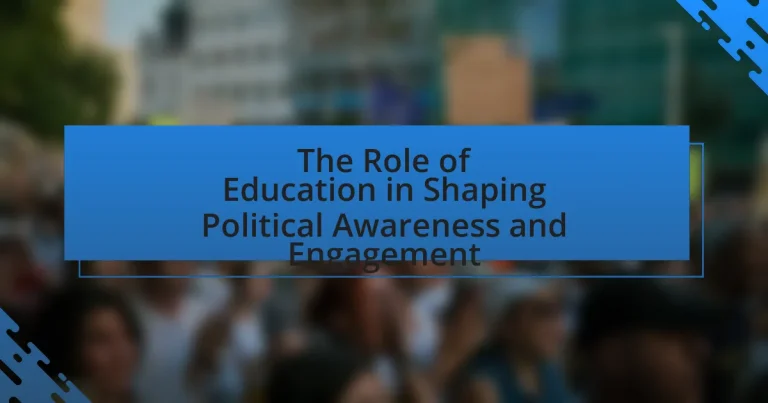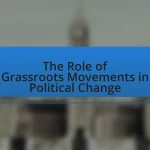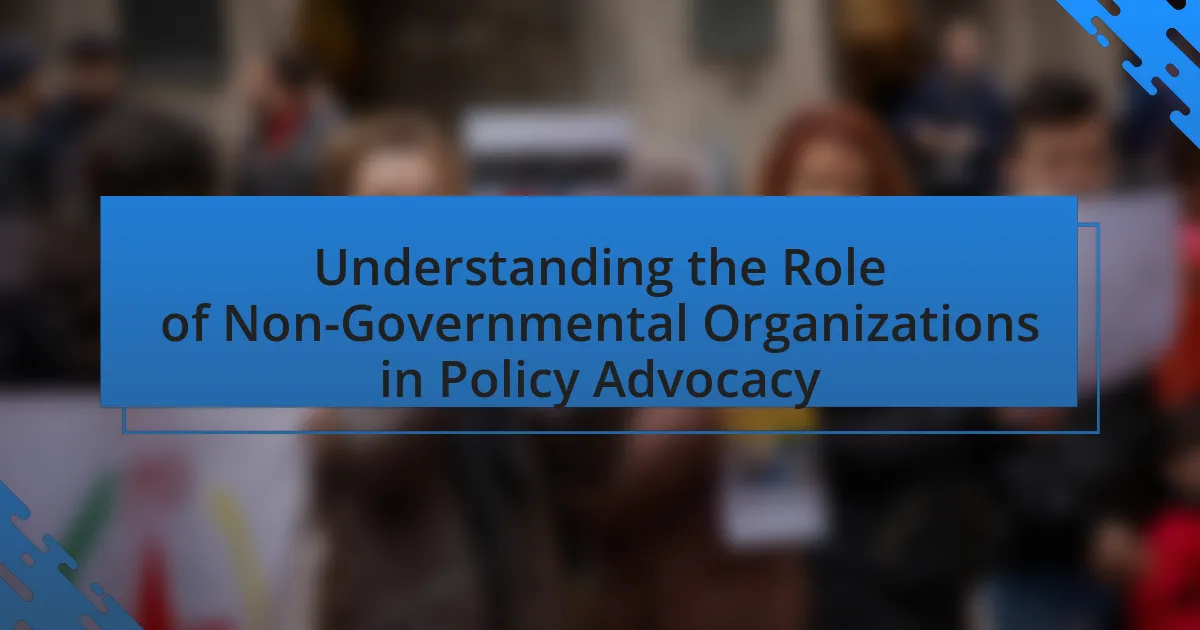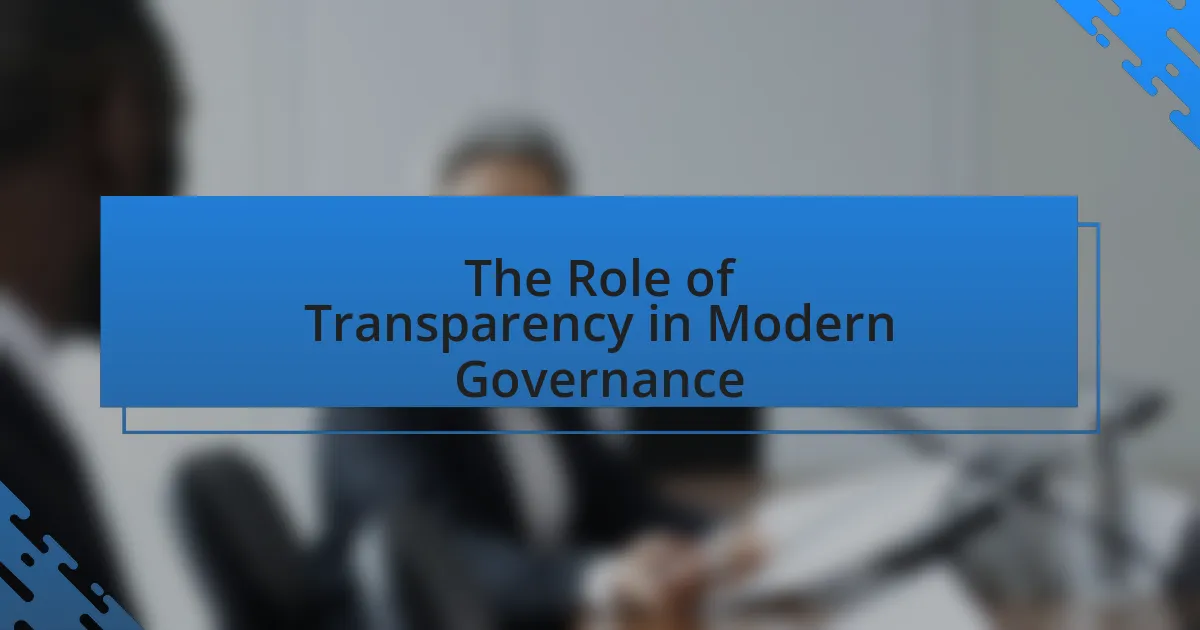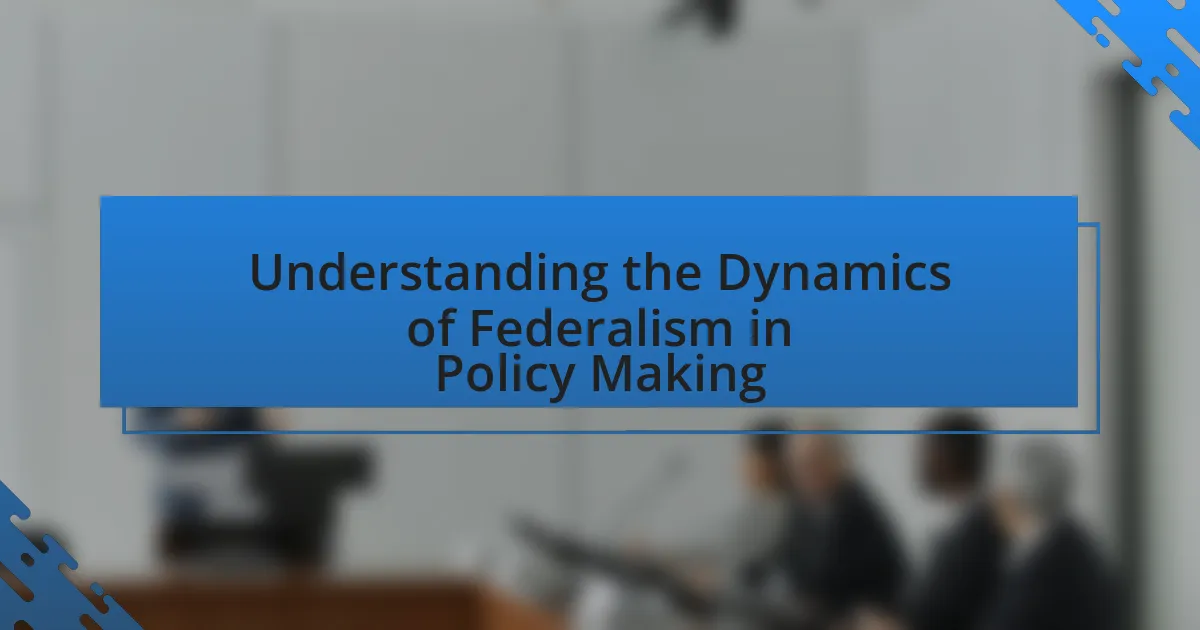The article examines the critical role of education in shaping political awareness and engagement among individuals. It highlights how formal education equips citizens with essential knowledge and critical thinking skills necessary for understanding political systems, thereby fostering informed participation in democratic processes. Key components such as civic education, experiential learning, and the influence of different educational systems on political engagement are discussed. Additionally, the article addresses the importance of political engagement for a healthy democracy, the consequences of low engagement, and the barriers students face in accessing political education, while also exploring best practices and the impact of technology and social media on political awareness.
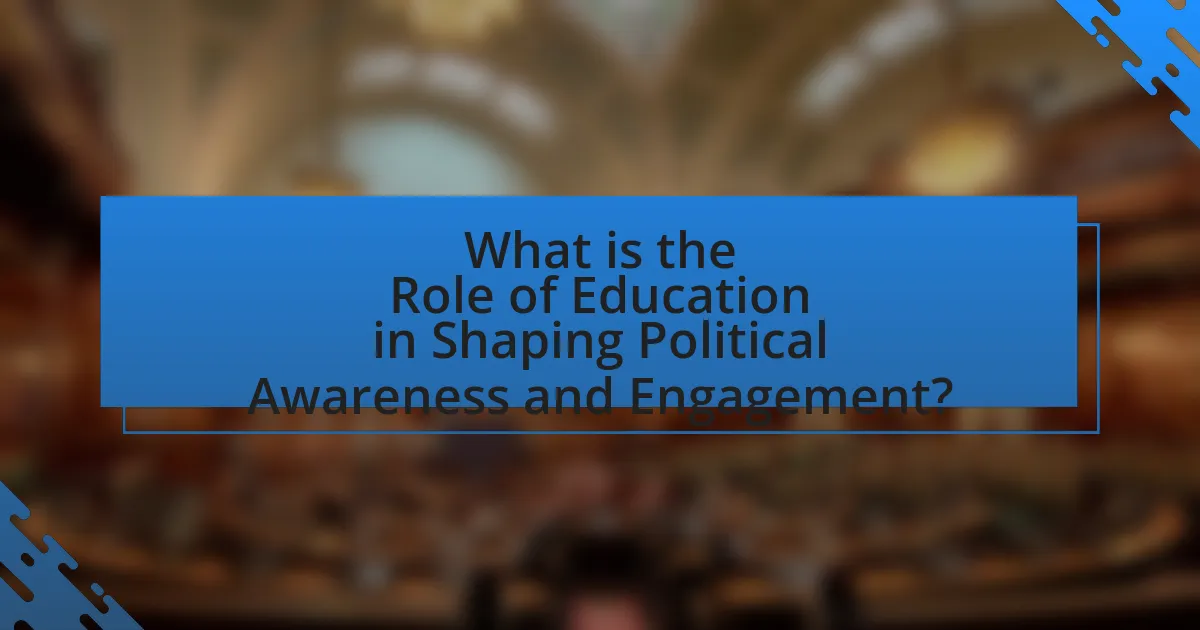
What is the Role of Education in Shaping Political Awareness and Engagement?
Education plays a crucial role in shaping political awareness and engagement by equipping individuals with the knowledge and critical thinking skills necessary to understand political systems and processes. Through formal education, individuals learn about civic responsibilities, the functioning of government, and the importance of participation in democratic processes. Research indicates that higher levels of education correlate with increased political participation; for instance, a study by the Pew Research Center found that college graduates are more likely to vote and engage in political discussions compared to those with lower educational attainment. This connection underscores the importance of education in fostering informed citizens who are capable of engaging in political discourse and advocacy.
How does education influence political awareness among individuals?
Education significantly enhances political awareness among individuals by providing them with critical thinking skills, knowledge of political systems, and exposure to diverse perspectives. Research indicates that higher levels of education correlate with increased political participation and awareness, as educated individuals are more likely to understand complex political issues and engage in civic activities. For instance, a study by the Pew Research Center found that individuals with a college degree are more likely to vote and stay informed about political matters compared to those with only a high school education. This relationship underscores the importance of education in fostering informed citizens who can actively participate in democratic processes.
What are the key educational components that foster political awareness?
Key educational components that foster political awareness include civic education, critical thinking skills, and experiential learning opportunities. Civic education provides foundational knowledge about governmental structures, political processes, and citizens’ rights and responsibilities, which is essential for understanding political systems. Critical thinking skills enable individuals to analyze political information, evaluate arguments, and make informed decisions, thereby enhancing their ability to engage in political discourse. Experiential learning opportunities, such as participating in debates, simulations, or community service, allow students to apply their knowledge in real-world contexts, reinforcing their understanding of political issues and encouraging active participation in civic life. Research indicates that students exposed to comprehensive civic education are more likely to vote and engage in community activities, demonstrating the effectiveness of these educational components in fostering political awareness.
How do different educational systems impact political engagement?
Different educational systems significantly impact political engagement by shaping students’ critical thinking skills, civic knowledge, and social responsibility. For instance, countries with robust civic education curricula, such as Finland, report higher levels of political participation among young citizens, as these programs encourage active citizenship and informed decision-making. Research by the International Association for the Evaluation of Educational Achievement (IEA) indicates that students exposed to comprehensive civic education are more likely to vote and engage in community activities. Conversely, educational systems that prioritize rote memorization and standardized testing, like those in some parts of the United States, often result in lower levels of political engagement, as students may lack the critical skills necessary to analyze political issues effectively. Thus, the structure and content of educational systems play a crucial role in determining the extent of political engagement among individuals.
Why is political engagement important for a democratic society?
Political engagement is crucial for a democratic society because it empowers citizens to influence governance and policy-making. Active participation ensures that diverse perspectives are represented, fostering accountability among elected officials. Research indicates that higher levels of political engagement correlate with increased voter turnout and civic participation, which are essential for a healthy democracy. For instance, the U.S. Census Bureau reported that in the 2020 election, about 66.8% of the eligible voting population participated, reflecting a significant engagement level that impacts electoral outcomes and policy direction. Thus, political engagement not only enhances individual agency but also strengthens the democratic process by ensuring that government reflects the will of the people.
What are the consequences of low political engagement?
Low political engagement leads to decreased representation and weakened democratic processes. When citizens are disengaged, their interests and needs are often overlooked by policymakers, resulting in policies that do not reflect the population’s desires. Research indicates that low voter turnout, often a sign of political disengagement, can lead to significant disparities in representation; for instance, the U.S. Census Bureau reported that in the 2020 presidential election, only about 66.8% of eligible voters participated, highlighting a gap in civic involvement. Furthermore, low engagement can foster political apathy, making it easier for extremist views to gain traction, as seen in various global contexts where disengagement has allowed fringe groups to influence mainstream politics.
How does political engagement contribute to social change?
Political engagement contributes to social change by empowering individuals to influence policies and advocate for reforms that address societal issues. When citizens participate in political processes, such as voting, campaigning, or activism, they amplify their voices and priorities, leading to legislative changes that reflect the needs of the community. For instance, the Civil Rights Movement in the United States showcased how organized political engagement resulted in significant legal reforms, including the Civil Rights Act of 1964, which aimed to eliminate discrimination. This historical example illustrates that active participation in politics can directly lead to transformative social outcomes.
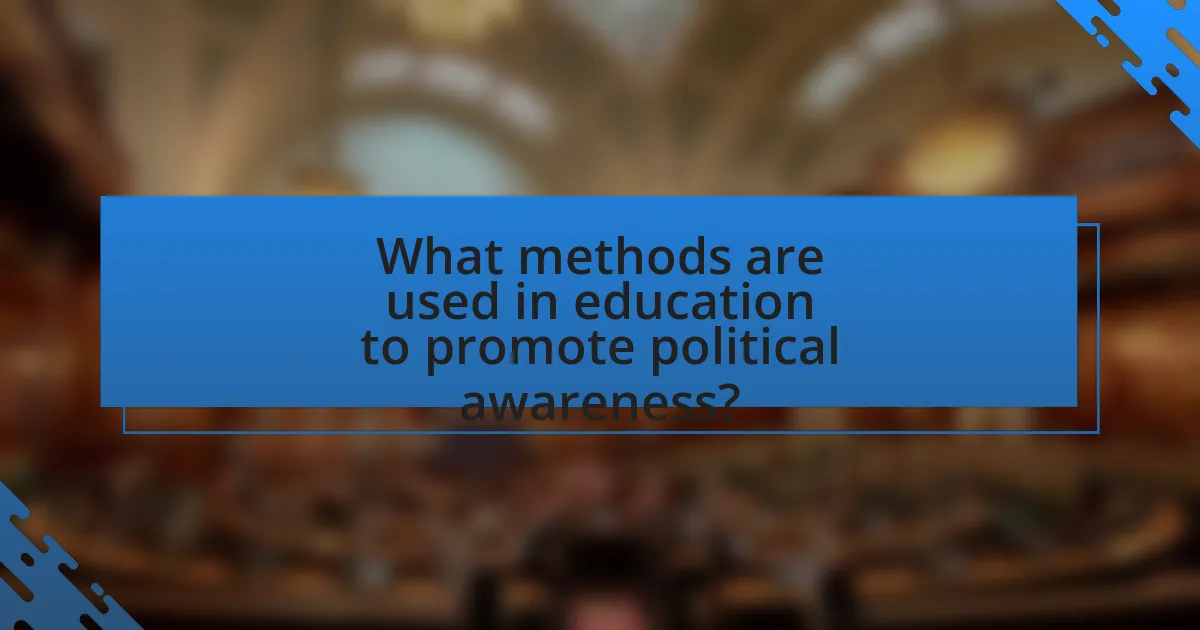
What methods are used in education to promote political awareness?
Education promotes political awareness through methods such as civic education, experiential learning, and critical discussions. Civic education programs, often integrated into school curricula, teach students about government structures, rights, and responsibilities, fostering informed citizenship. Experiential learning, including simulations of political processes like mock elections or debates, engages students actively, enhancing their understanding of political dynamics. Critical discussions in classrooms encourage students to analyze current events and diverse perspectives, promoting critical thinking and informed opinions. Research indicates that students exposed to these methods demonstrate higher levels of political knowledge and engagement, as evidenced by studies showing increased voter turnout among educated youth.
How do curricula incorporate political education?
Curricula incorporate political education by integrating topics such as civic responsibility, government structure, and political processes into subjects like social studies and history. This integration helps students understand their roles as informed citizens and the importance of participation in democratic processes. For example, the National Council for the Social Studies emphasizes the need for students to engage with current events and develop critical thinking skills regarding political issues, which fosters political awareness and engagement. Additionally, many educational standards, such as the Common Core State Standards, include components that encourage discussions on civic values and rights, further embedding political education within the curriculum.
What subjects are most effective in teaching political awareness?
Social studies, civics, and history are the most effective subjects in teaching political awareness. These subjects provide students with foundational knowledge about governmental structures, political processes, and historical contexts that shape current political landscapes. For instance, civics education equips students with an understanding of their rights and responsibilities as citizens, while history lessons often highlight significant political movements and events that have influenced societal change. Research indicates that students who engage with these subjects demonstrate higher levels of political knowledge and civic engagement, as evidenced by studies showing that comprehensive civics education can lead to increased voter participation and community involvement.
How do extracurricular activities enhance political engagement?
Extracurricular activities enhance political engagement by providing students with opportunities to develop leadership skills, foster civic responsibility, and engage in community issues. Participation in clubs, debate teams, or student government encourages individuals to discuss political topics, understand diverse perspectives, and mobilize peers around social causes. Research indicates that students involved in extracurricular activities are more likely to vote and participate in civic activities; for instance, a study by the National Conference on Citizenship found that youth who engage in extracurricular activities are 20% more likely to be active in their communities compared to those who do not. This involvement cultivates a sense of agency and awareness, ultimately leading to increased political participation.
What role do educators play in shaping political awareness?
Educators play a crucial role in shaping political awareness by facilitating critical thinking and encouraging civic engagement among students. Through discussions, debates, and curriculum design, educators expose students to various political ideologies, historical contexts, and current events, fostering an informed citizenry. Research indicates that students who engage in civic education are more likely to participate in political activities, such as voting and community service, demonstrating the direct impact of educators on political engagement. For instance, a study by the Center for Information and Research on Civic Learning and Engagement found that high school students who received civic education were 20% more likely to vote in subsequent elections.
How can teachers effectively engage students in political discussions?
Teachers can effectively engage students in political discussions by creating a safe and inclusive environment that encourages open dialogue. This approach allows students to express diverse viewpoints without fear of judgment, fostering critical thinking and respectful debate. Research indicates that when students feel their opinions are valued, they are more likely to participate actively in discussions (Cohen, 2018, “The Importance of Student Voice in Political Education,” Journal of Educational Research). Additionally, incorporating current events and relatable topics can make political discussions more relevant and engaging for students, enhancing their understanding of civic issues and responsibilities.
What training do educators need to promote political engagement?
Educators need training in civic education, critical thinking, and inclusive teaching strategies to promote political engagement. This training equips them to facilitate discussions on political issues, encourage student participation in democratic processes, and create an environment that values diverse perspectives. Research indicates that programs focusing on civic education, such as the “Civics for All” initiative, have shown increased student engagement in political activities and improved understanding of civic responsibilities. Additionally, training in critical thinking helps educators guide students in analyzing political information and forming their own opinions, which is essential for active citizenship.

What challenges exist in using education to foster political awareness?
Using education to foster political awareness faces several challenges, including curriculum bias, lack of resources, and varying levels of student engagement. Curriculum bias can lead to the presentation of a one-sided perspective, limiting students’ understanding of diverse political viewpoints. For instance, studies have shown that educational materials often reflect the dominant political ideology, which can skew students’ perceptions. Additionally, many educational institutions lack the necessary resources, such as trained educators and updated materials, to effectively teach political concepts. This resource gap can hinder the quality of political education provided. Furthermore, varying levels of student engagement can result from differences in interest, background, and prior knowledge, making it difficult to create a universally effective educational approach. These challenges collectively impede the goal of fostering informed and active political participation among students.
What barriers do students face in accessing political education?
Students face several barriers in accessing political education, including lack of resources, insufficient curriculum integration, and socio-economic factors. Limited access to educational materials and trained educators can hinder students’ understanding of political concepts. Additionally, many educational institutions do not prioritize political education within their curricula, resulting in a lack of comprehensive instruction. Socio-economic factors, such as financial constraints and varying levels of parental support, further exacerbate these challenges, leading to disparities in political knowledge and engagement among students.
How do socioeconomic factors influence political engagement in education?
Socioeconomic factors significantly influence political engagement in education by affecting access to resources, information, and opportunities for participation. Individuals from higher socioeconomic backgrounds often have greater access to quality education, which enhances their political knowledge and engagement levels. For instance, research indicates that students from affluent families are more likely to participate in civic activities and have higher rates of voter turnout compared to their lower-income peers. This disparity is supported by data from the U.S. Census Bureau, which shows that educational attainment correlates with income levels, thereby impacting political participation. Additionally, socioeconomic status can shape the values and priorities of individuals, leading to differing levels of advocacy for educational policies that align with their interests.
What role does media play in shaping perceptions of political education?
Media plays a crucial role in shaping perceptions of political education by influencing public discourse and framing political narratives. Through various platforms, such as news outlets, social media, and documentaries, media disseminates information that can either enhance or distort understanding of political concepts and issues. For instance, studies have shown that exposure to diverse media sources can lead to a more informed electorate, as individuals gain access to multiple viewpoints and analyses, which fosters critical thinking about political matters. Conversely, biased or sensationalized reporting can create misconceptions and reinforce existing biases, ultimately affecting civic engagement and political participation. Research indicates that individuals who consume news from a variety of sources are more likely to engage in political discussions and activities, highlighting the media’s significant impact on political education.
How can education systems overcome these challenges?
Education systems can overcome challenges in shaping political awareness and engagement by integrating civic education into the curriculum. This approach equips students with the knowledge of political processes, rights, and responsibilities, fostering informed citizenship. Research indicates that students exposed to civic education are more likely to participate in political activities, as evidenced by a study from the Center for Information and Research on Civic Learning and Engagement, which found that civic education significantly increases voter turnout among young adults. By prioritizing civic education, education systems can effectively address the challenges of political disengagement and apathy.
What strategies can be implemented to enhance political education accessibility?
To enhance political education accessibility, implementing digital platforms for online learning is essential. These platforms can provide a wide range of resources, including interactive courses, webinars, and discussion forums, making political education available to diverse audiences regardless of geographical location. For instance, the rise of Massive Open Online Courses (MOOCs) has demonstrated that online education can reach millions, with platforms like Coursera and edX offering courses on political science and civic engagement. Additionally, integrating political education into school curricula at all levels ensures that students receive foundational knowledge early on, fostering informed citizenship. Research indicates that early exposure to political concepts significantly increases civic participation in adulthood. Furthermore, community outreach programs that target underrepresented groups can bridge gaps in access, ensuring that marginalized communities have the tools and knowledge necessary to engage in political processes.
How can community involvement improve political engagement in schools?
Community involvement can significantly improve political engagement in schools by fostering a sense of responsibility and connection among students. When local organizations, parents, and community leaders participate in educational activities, they provide students with real-world contexts for understanding political processes and civic duties. For instance, programs that involve students in community service or local governance initiatives have been shown to increase their interest in political issues and participation in elections. Research indicates that students who engage with community projects are more likely to vote and participate in civic activities, as evidenced by a study from the Center for Information and Research on Civic Learning and Engagement, which found that youth involved in community service are 50% more likely to vote in their first election compared to those who are not involved.
What are best practices for enhancing political awareness through education?
Best practices for enhancing political awareness through education include integrating civic education into school curricula, promoting critical thinking skills, and encouraging active participation in democratic processes. Civic education equips students with knowledge about government structures, rights, and responsibilities, which is essential for informed citizenship. Research shows that students who receive comprehensive civic education are more likely to engage in political activities, such as voting and community service. Additionally, fostering critical thinking enables students to analyze political information critically, helping them discern biases and make informed decisions. Programs that facilitate active participation, such as student government and debates, further enhance engagement by providing practical experiences in governance and advocacy.
How can interactive learning methods be utilized in political education?
Interactive learning methods can be utilized in political education by engaging students through simulations, debates, and collaborative projects that foster critical thinking and active participation. These methods encourage learners to explore political concepts in a hands-on manner, allowing them to apply theoretical knowledge to real-world scenarios. For instance, role-playing exercises can simulate legislative processes, helping students understand the complexities of governance and decision-making. Research indicates that such experiential learning approaches enhance retention and comprehension of political content, as evidenced by a study published in the Journal of Political Science Education, which found that students participating in interactive activities demonstrated higher levels of political engagement and understanding compared to traditional lecture-based instruction.
What role do technology and social media play in political engagement education?
Technology and social media significantly enhance political engagement education by providing platforms for information dissemination, discussion, and mobilization. These tools facilitate access to diverse political viewpoints and resources, enabling individuals to educate themselves about political issues and participate in civic activities. For instance, studies show that social media platforms like Twitter and Facebook have been instrumental in organizing movements such as the Arab Spring, demonstrating their capacity to mobilize citizens and foster political activism. Additionally, research from the Pew Research Center indicates that 70% of social media users engage with political content, highlighting the role of these platforms in shaping political awareness and encouraging informed participation in democratic processes.
